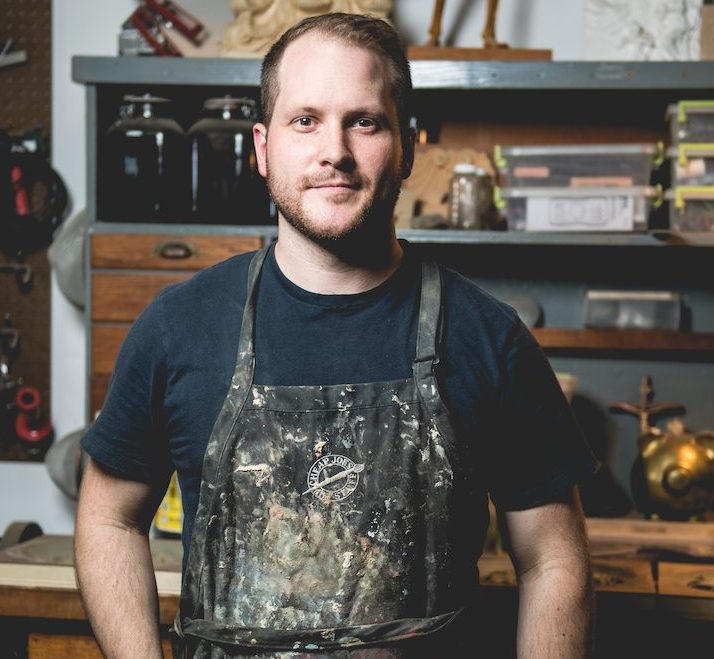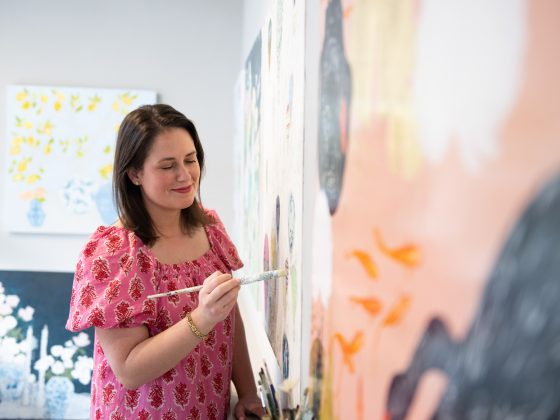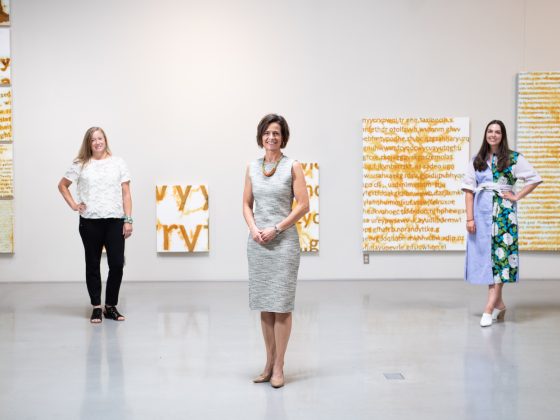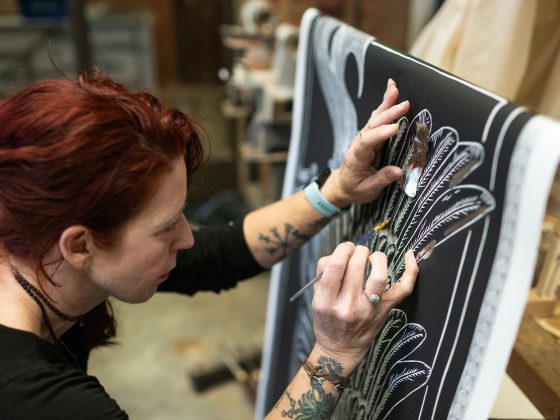Jacob Benjamin Wolfe began as a violinist. That’s right: he first studied music, not woodworking. The intricate detail etched into the timber he molds and shapes betrays the kind of education that the masters who inspired him received. The more-beautiful-than-life representations of the human form and biblical scenes from masters like Bernini and Michelangelo were the result of a lifetime of study and work, but in just seven years, Wolfe has made strides, leaps, and bounds, in pursuit of that same passion.
Wolfe does his work in a factory space in North Davidson, right down the street from NoDa Brewery and next door to Amelie’s business office. Upon entering his shop, one is met by large pallets of wood ready to be cut and nine-foot-tall statues of figures like John the Baptist and Jesus Christ. Standing in front of the barn door he made, you can see a gorgeously colorful mural (three stories tall and the length of a city block) in the distance.
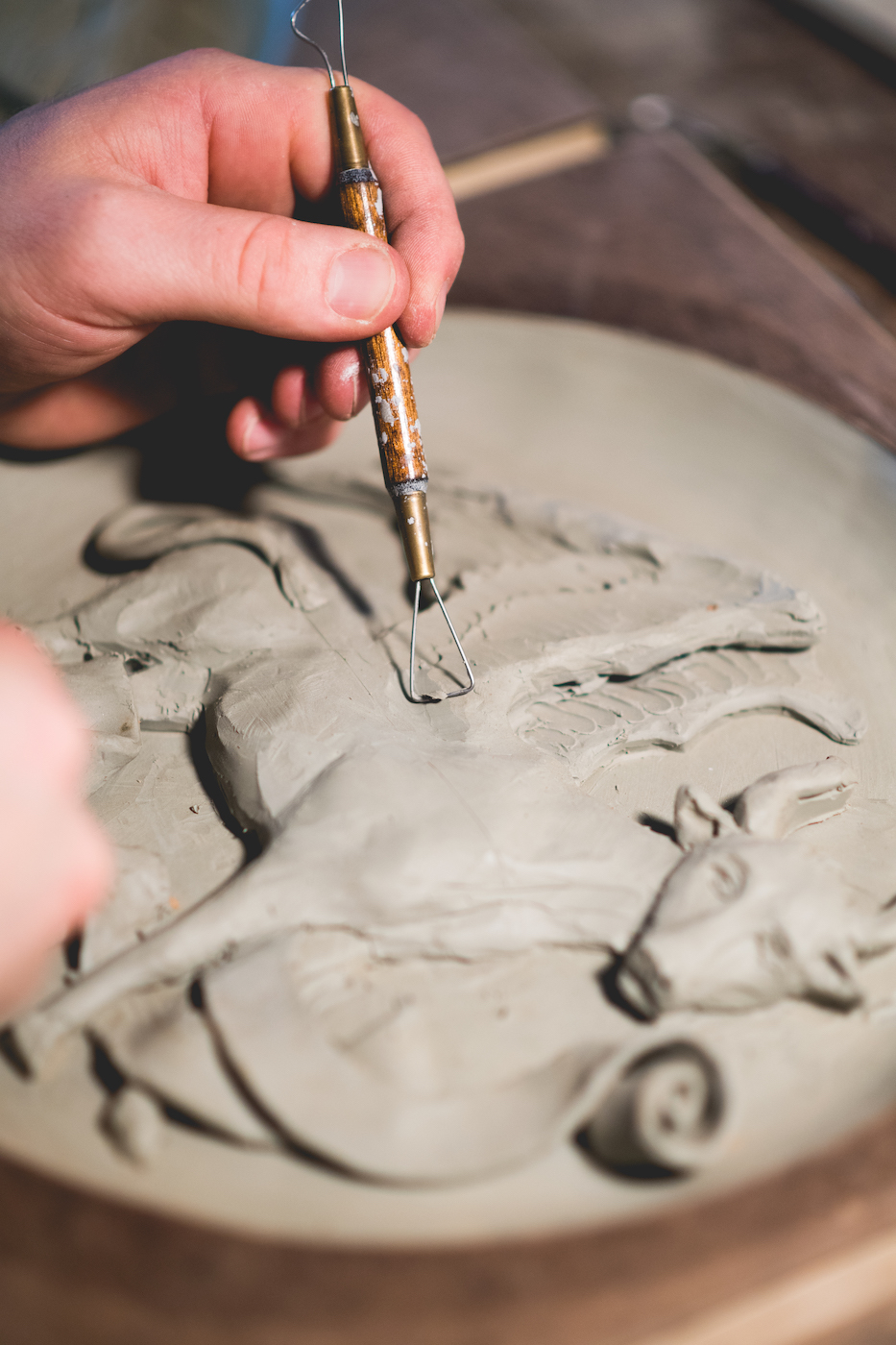
Most of Wolfe’s work is done for the church. The first woodworking job he ever undertook was to renovate St. John the Baptist Church, transforming what was a drab, white-walled room into the exquisitely carved sanctuary it is today. That was eight years ago. Looking back on it, he sees that first project as an essential stepping stone. He’s currently working on St. Thomas Aquinas’ church, asked to do so by the same priest who originally requested his help at John the Baptist. In a way, he’s come full circle.
“The purpose of church art and architecture,” says Wolfe, “other than its functionality, is to draw the viewer up toward heaven, and to try our best to represent the beauty of heaven so the viewer can be inspired to live a life that leads there.”
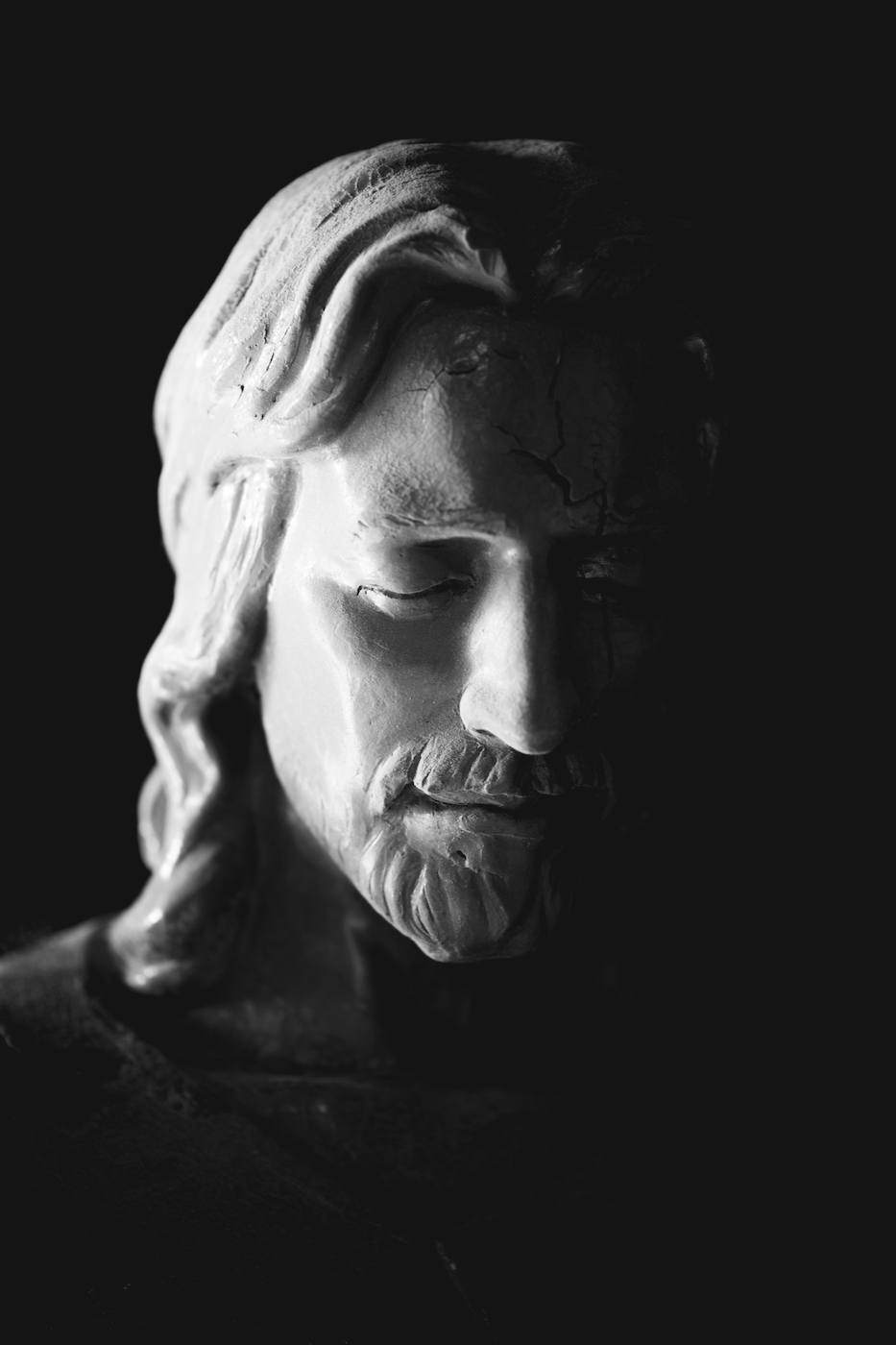
“The purpose of church art and architecture,” says Wolfe, “other than its functionality, is to draw the viewer up toward heaven, and to try our best to represent the beauty of heaven so the viewer can be inspired to live a life that leads there.”
The yearning for a closer relationship with God has driven Wolfe to where he is. It seems poetic in a way, like a veritable Joseph the Carpenter, blessed with the knowledge of styles that defined the rebirth of art. Wolfe is self-taught, but he’s had the good fortune to be mentored by world-class artists, who still come by to give him advice now and then. To attain the skill of the masters of old seems like a lofty goal for anyone, but Wolfe is well on his way.


